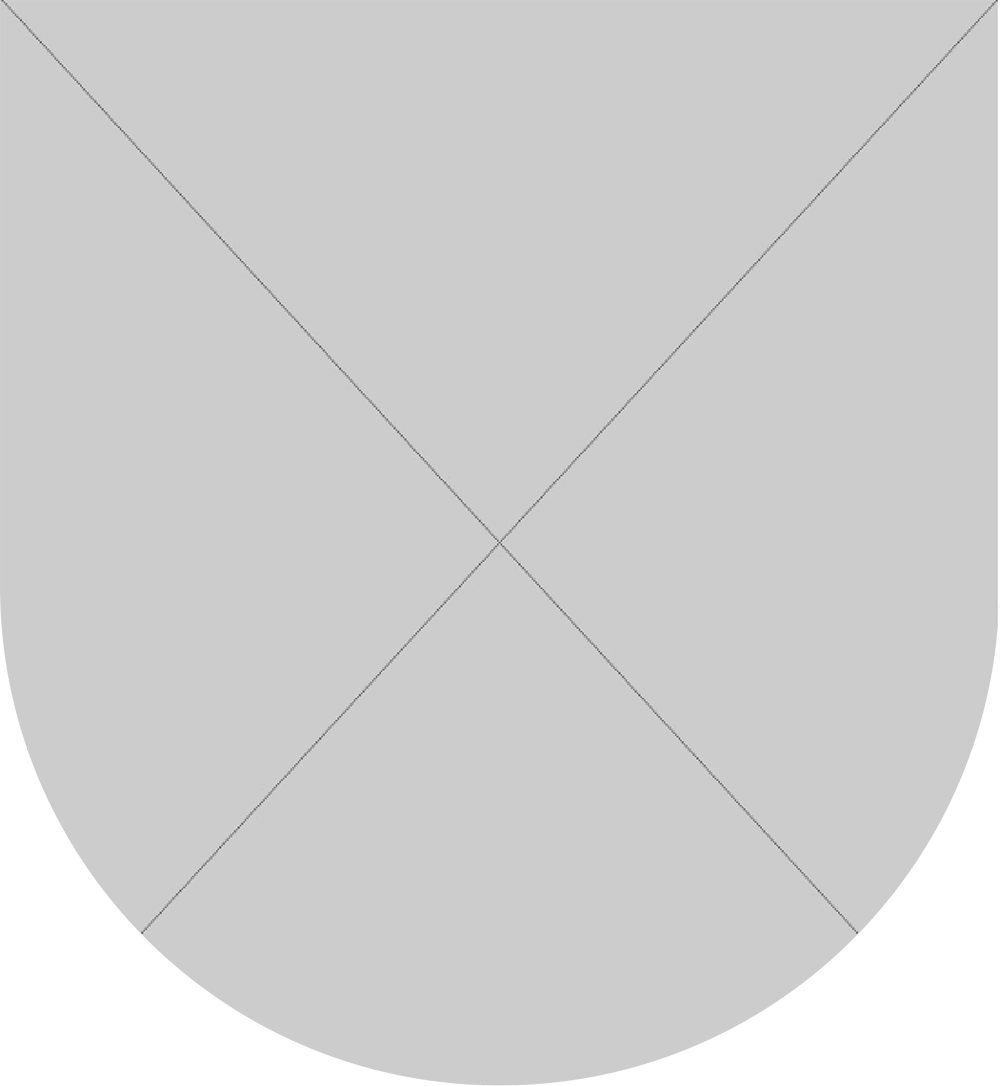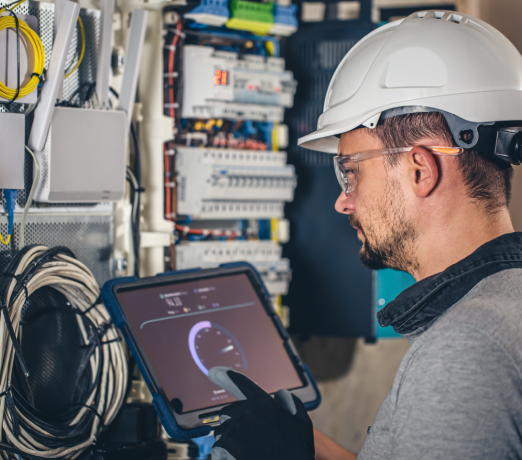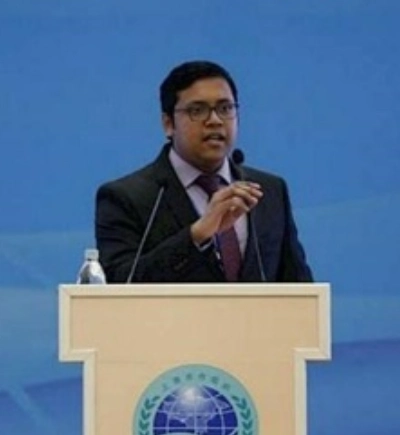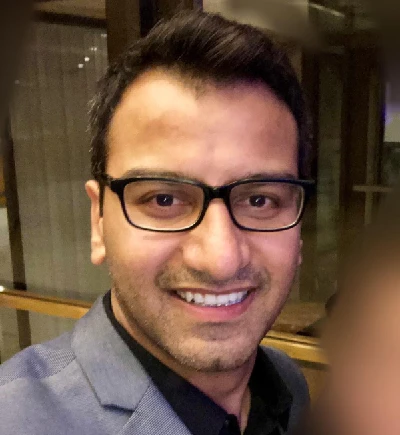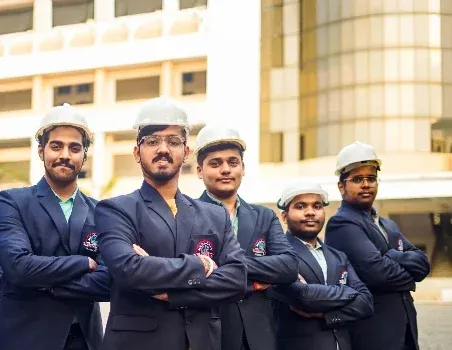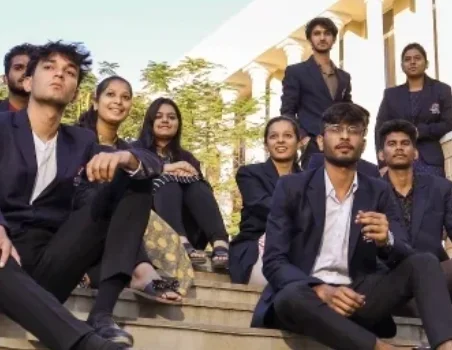PROGRAMS
B.Tech. ECE - Electronics & Communication Engineering
-
Faculty Engineering
-
Department Electronics Engineering
-
Duration 8 Semesters (4 Years)
Eligibility Criteria
12th Passed with: Physics + Mathematics + (TOS)
Third Optional Subject (TOS) in 12th : Chemistry / Computer Science / Electronics/ Information Technology / Biology / Informatics Practices / Biotechnology/ Technical Vocational subject/ Agriculture/ Engineering Graphics/ Business Studies/ Entrepreneurship
Program Overview
B.Tech in Electronics and Communications Engineering is a four-year undergraduate program that provides students with a solid foundation in electronics, communication systems, and their applications in modern technology.
The program helps produce talented engineers who are capable of designing and developing advanced electronics and communication systems for various industries. Students begin with core subjects like electronic devices, circuits, digital systems, and signal processing. They progress to specialized subjects like wireless communication, VLSI design, embedded systems, IoT, and optical communication. Practical exposure through lab work and industry internships equips students with hands-on experience and problem-solving skills.
Graduates of B.Tech in Electronics and Communications Engineering from one of the top engineering colleges in Indore can pursue jobs such as telecom engineers, software analysts, embedded systems engineers, or network planning engineers.
Course Curriculum
Programme Educational Objectives (PEOs)
The Program Educational objectives of the Electronics Engineering undergraduate program are to:
PEO-1
To impart students the education of basic sciences, fundamentals involved in electronics and related engineering fields, and computer programming, in addition, specifically prepare them to design, analyze and synthesize electronic circuits, software tools and equipment.
PEO-2
To train students as experts to evaluate the real life technical problem and suggest solutions which are socially and economically viable.
PEO-3
To give the students’ knowledge of professional, administrative, ethical practices to make them outshining and adaptable to combat any critical situation in a global scenario.
PEO-4
To create a mindset among the faculty members to prepare and persuade students for research activity and scientific innovations to make continuous development in fields of Electronics engineering.
PEO-5
To build graduates to be involved in higher education and lifelong learning, having interpersonal skill and effective communication ability, able to lead teams involved in diverse fields, having quality to act with integrity, and content with ethical and social values.
Programme Outcomes (POs)
Engineering graduates will be able to:
POs-1
Engineering knowledge:
Apply the knowledge of mathematics, science, engineering, fundamentals, and an engineering specialization to the solution of complex engineering problems.
POs-2
Problem Analysis:
Identify, formulate, review, research literature, and analyze complex engineering problems reaching substantiated conclusions using first principles of mathematics, natural sciences, and engineering sciences.
POs-3
Design / Development of Solutions:
Design solutions for complex engineering problems and design system components or processes that meet the specified needs with appropriate consideration for the public health and safety, and the cultural, societal, and environmental considerations.
POs-4
Conduct Investigations of Complex Problems:
Use research-based knowledge and research methods including design of experiments, analysis and interpretation of data, and synthesis of the information to provide valid conclusions.
POs-5
Modern Tool Usage:
Create, select, and apply appropriate techniques, resources, and modern engineering and IT tools including prediction and modelling to complex engineering activities with an understanding of the limitations.
POs-6
The Engineer and Society:
Apply reasoning informed by the contextual knowledge to assess societal, health, safety, legal and cultural issues and the consequent responsibilities relevant to the professional engineering practice.
POs-7
Environment and Sustainability:
Understand the impact of the professional engineering solutions in societal and environmental contexts, and demonstrate the knowledge of, and need for sustainable development.
POs-8
Ethics:
Apply ethical principles and commit to professional ethics and responsibilities and norms of the engineering practice.
POs-9
Individual and Team Work:
Function effectively as an individual, and as a member or leader in diverse teams, and in multidisciplinary settings.
POs-10
Communication:
Communicate effectively on complex engineering activities with the engineering community and with society at large, such as, being able to comprehend and write effective reports and design documentation, make effective presentations, and give and receive clear instructions.
POs-11
Project Management and Finance:
Demonstrate knowledge and understanding of the engineering and management principles and apply these to one’s own work, as a member and leader in a team, to manage projects and in multidisciplinary environments.
POs-12
Life-long Learning:
Recognize the need for, and have the preparation and ability to engage in independent and life-long learning in the broadest context of technological change.
Programme Specific Outcomes
The Program Specific Outcomes of the Electronics Engineering undergraduate program are:
PSO-1
Validate skill in software programming and hardware design as expected in the field of electronics and communication engineering.
PSO-2
Prove their capacity to do advanced study and research related with electronics and communication subjects such as embedded systems, wireless communication, VLSL design, signal processing etc.
PSO-3
Gain industrial exposure by completing long term internship in industry and making projects in collaboration with industry.
PSO-4
Attain soft skills such as verbal and written communication, teamwork, adaptability, leadership, critical observation, and problem solving.
Career Path

Alumni
Admissions
Faq's
It involves designing and developing electronic devices, circuits, and communication equipment like smartphones, satellite systems, and IoT devices.
Graduates can pursue roles such as communication engineers, embedded systems engineers, VLSI designers, and network analysts.
Yes, the curriculum includes industry projects and internships to provide real-world experience in electronics and communication.
Emerging technologies include 5G communication, IoT, autonomous systems, and wearable devices.
The program provides a strong foundation in both theoretical concepts and practical skills, including hands-on lab work and exposure to industry standards.
Start your journey with Medicap
Contact

Phone
+ 917313111500